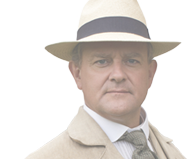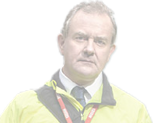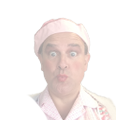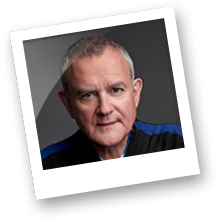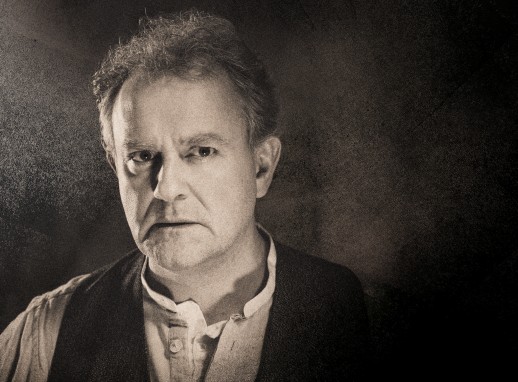Interview by Jenny Mark-Bell for Sussex Life
Hugh Bonneville had a starring role in one of the UK’s biggest ever television exports. After playing Lord Grantham for six years, Hugh returned to the stage in Ibsen’s An Enemy of the People at Chichester Festival Theatre. He spoke to Jenny Mark-Bell.
Originally published in the May 2016 issue of Sussex Life.
A few weeks before I am to meet him in Chichester, Hugh Bonneville achieves one of Britain’s most convincing indicators of national treasure status – an appearance on BBC Radio 4’s Desert Island Discs.
Now, after six years playing Lord Grantham in Julian Fellowes’ enormously popular Downton Abbey, the West Sussex actor returned to the stage in An Enemy of the People, a little-performed Ibsen play.
Hugh is a prolific television actor – he appears as BBC Head of Values Ian Fletcher in the highly-acclaimed comedy W1A and plays the Duke of Gloucester alongside Benedict Cumberbatch in Henry IV Part I as part of the series The Hollow Crown: The Wars of the Roses. His films include Notting Hill, Paddington and The Monuments Men, the latter of which was partly filmed in Sussex.
This return to the stage comes after years of conversation between Hugh and Jonathan Church, the departing artistic director of Chichester Festival Theatre. “Jonathan has been very persistent,” says Hugh. “We have had endless coffees over the last four or five years, trying to find a gap when I could come. Obviously with Downton Abbey taking up six months of the year and then me needing a little lie down afterwards it has never quite fitted in. And then we both got lucky. With Downton finishing I had this gap, and I wanted to do something locally and dip my toe back into the theatre water.”
Ibsen wrote An Enemy of the People as a response to the intensely hostile public and critical reception to his play Ghosts, which was pilloried for its treatment of the taboo subjects of syphilis and euthanasia. Hugh elaborates: “He had already been fermenting these ideas about what difference the individual can make to the wider community by standing firm. This reaction to his play really fuelled him and he was determined to give it to them with both barrels.”
As Dr Thomas Stockmann, Hugh plays the idealistic man of principle whose hubris plunges his family into social exile and financial ruin, as he seeks to expose the town’s poisoned water supply, placing its prosperity as a spa town in jeopardy. “I hadn’t read this play until Jonathan sent it to me,” says Hugh. “I couldn’t put it down, because you are blazing with passion for this guy and then you see it gradually all fall apart and the town keeping out this man who is a danger to society, as they see it. Interestingly and famously, it was the basis for the plot of Jaws: there’s a guy saying watch out, there’s a big shark out there and it’s dangerous and the town is saying shut up, we want people to be on our beaches!”
Hugh believes that the play’s themes are timely: “Trust me, this feels utterly contemporary, particularly with the way that it talks about the power of the press and the accountability of governments. There is always this tussle between centralisation and decentralisation and the power of the individual versus the power of the community and the state. Ibsen deals with all that and the audience is experiencing that every day in their choices. We’ve got the referendum coming up: how much power do we want to give away to a European system and how much do we want to preserve for ourselves? All these things are present in this particular play and I think the audience will be left fizzing with ideas as they leave the theatre.”
In his Desert Island Discs interview with Kirsty Young, Hugh recalled his plan after leaving drama college: treading the boards at Chichester within five years and the Royal Shakespeare Company within 10. In the event he went to the RSC first. This year marks the 20th anniversary of his first appearance at Chichester Festival Theatre, in The Handyman with Frank Finlay. “I was so excited to be coming to my local theatre and as it turned out we only did a 10-day run, because then we went out on tour.”
It’s easy to see why it represented such a milestone for him. Hugh’s parents moved to West Sussex when he was a young teenager and he has been coming to the theatre ever since. “In the Seventies I remember coming here to see Donald Sinden, and Googie Withers seemed to be in everything. Then when Sam Mendes opened the Minerva Theatre I remember coming to see everything that season. Gradually as I got into the profession more and more of my friends came to work here and it became even more of a magnet for me. It’s always been there for me in the background of my artistic cognisance, if you like, and it’s great to see it thriving in 2016.”
He is looking forward to the collaborative experience of working in live theatre again. “Sometimes you can be on a production and never meet your co-stars, because you’re in different parts of the film. In Downton, for instance, I barely had any scenes with some of the downstairs staff, which meant it was a thrill to watch the whole thing and see what the others had been up to. In theatre it is absolutely about the acting company, and you can’t get cut out in the editing room. It’s up to you to drive the show each night as an ensemble.” Film and television are still very much on the radar though, with Hugh appearing on our cinema screens soon as Lord Louis Mountbatten in Gurinder Chadha’s Viceroy’s House. A Paddington sequel is in the works. He describes his character in that film, Mr Brown, as his favourite of recent years. “I thoroughly enjoyed that character and working with Sally Hawkins as Mrs Brown. We improvised a lot in rehearsals and that was a complete joy. I met up with Paul King, the director, who is writing the new one and he gave me a very rough outline of where he thought the story might go. There are plans afoot but nothing is signed and sealed.”
Recently Hugh became involved in another local project – an album inspired by the landscape of the South Downs and composed by his friend Damian Montagu, with contributions from local musicians including brass player Stewart Prosser (look out for an interview with the pair in our June issue). Hugh wrote and recorded some of his musings. His eyes were opened to the beauty of the area when he completed a 100km charity walk from Petersfield to Brighton Racecourse with a group of friends from his village and he walks and jogs (“I wobble, rather than run”) over the countryside near home. “I take my batty Tibetan terrier with me who in fact has now got a pal, so we’ve got two Tibetan terriers. The new one is very much more bouncy – Teddy is eight and he’s a bit more of a refined gentleman and Sasha is eager to explore everything. She hasn’t been up there yet so I’m looking forward to taking her up on the Downs and showing her what God’s own patchwork quilt looks like.”
My favourite Sussex
• Restaurant: The Leconfield in Petworth.
• Shop: Cowdray Farm Shop, just outside Midhurst… the Fortnum and Mason of West Sussex.
• View: The view from above Harting. There is a particular copse just as you leave the National Trust car park at the top of Harting Down and as you approach the view gradually reveals itself. I can remember sitting learning lines with my mum 20-something years ago in the spring, with the skylarks swooping. If I’m in a windy trailer filming somewhere godforsaken, I always think about that view and it cheers me up.
• Visitor attraction: I love going to the Weald & Downland Museum. For the past 25 years I have visited it and I go fairly regularly, about three or four times a year. I love it there and I find it very atmospheric and informative. It’s great to see kids going around with their clipboards and finding out about traditional artisan methods. It’s a great day out and it’s where I always take visitors, particularly ones from overseas.



